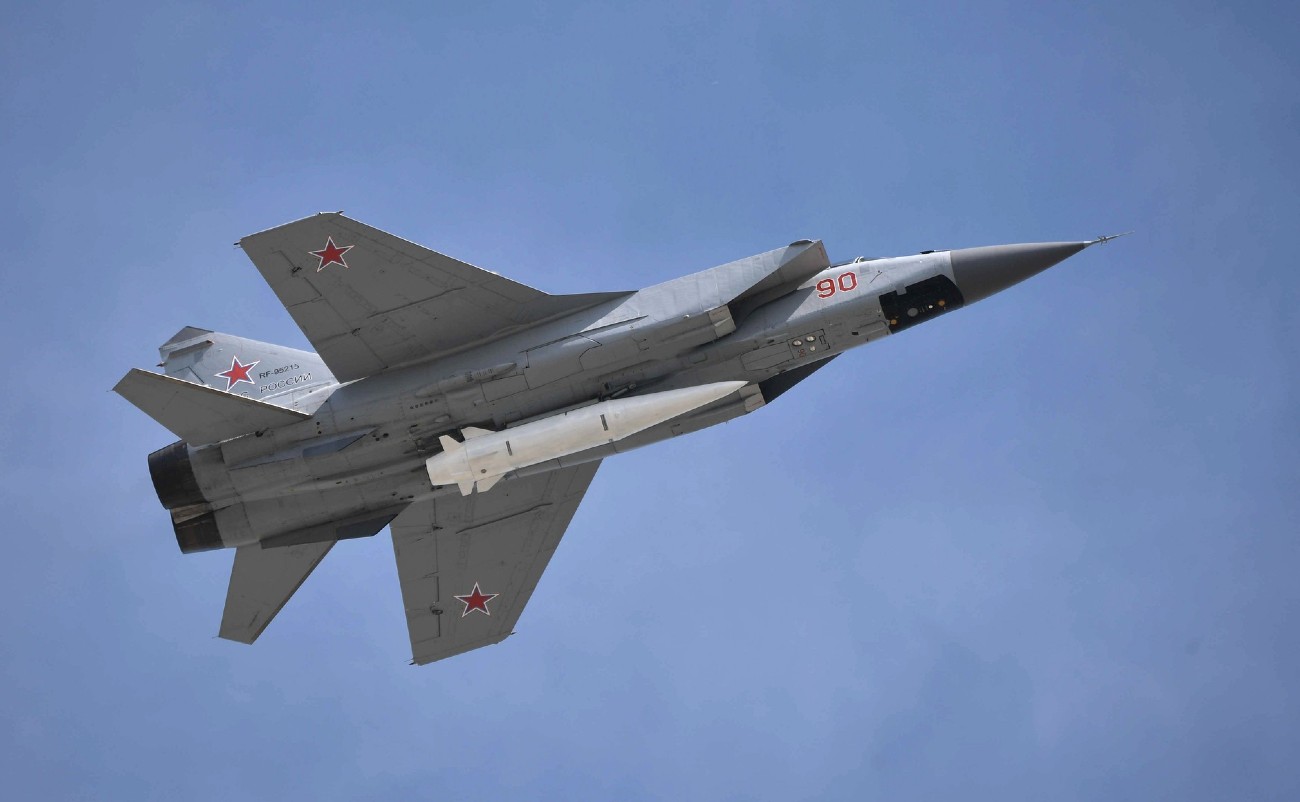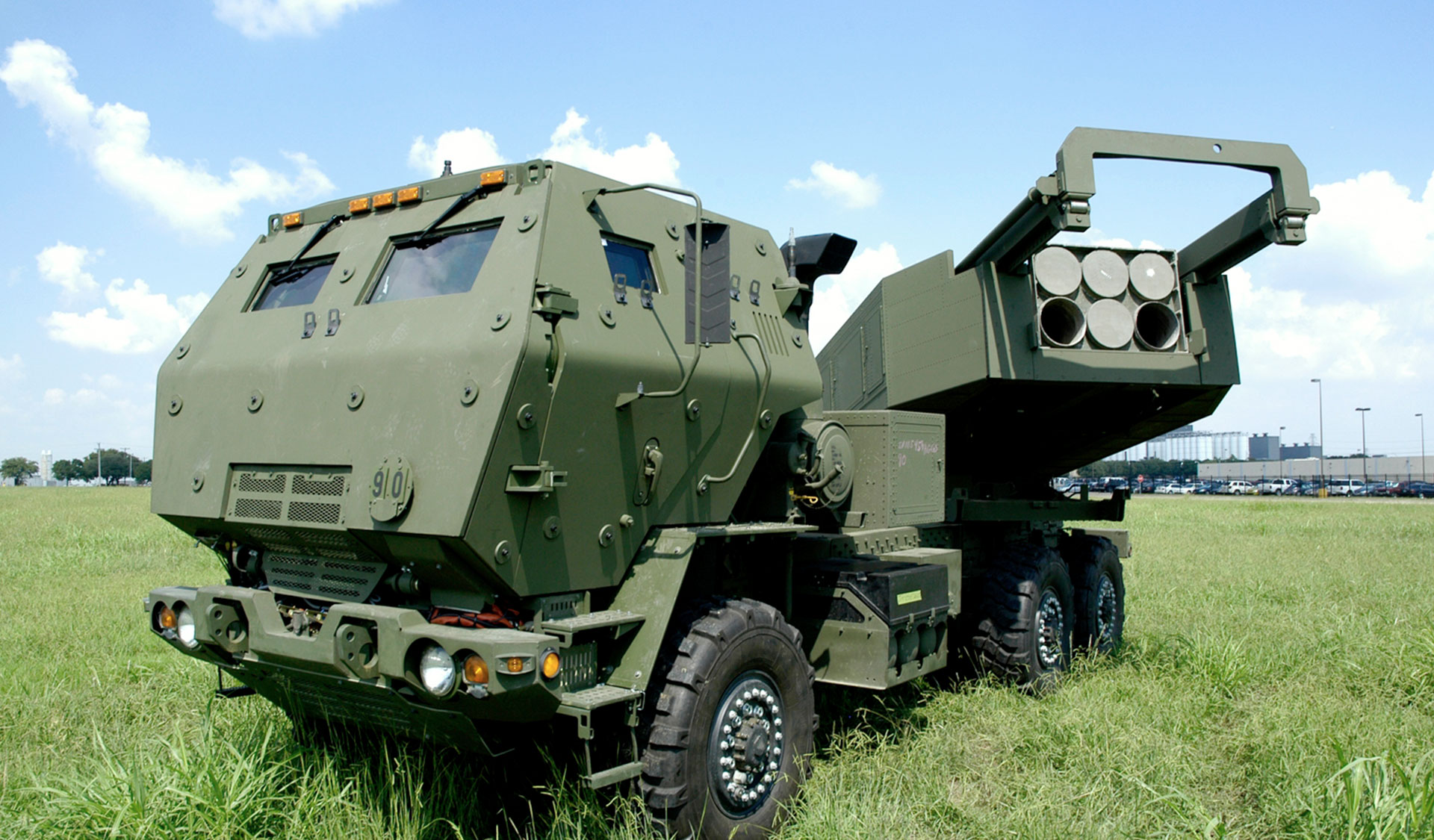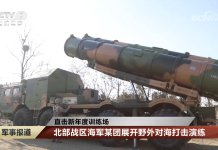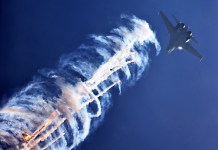China has cast doubt on the reports that the US-manufactured Patriot air defense system successfully intercepted and shot down a volley of Russia’s Kinzhal hypersonic missiles.
US Soldier ‘Salutes’ Russian Sukhoi Fighters & Warship; Netizens Mock US Pacific Fleet For July 4 Graphic Gaffe
Ukrainian Defense Minister Oleksii Reznikov was quoted saying that China’s envoy expressed disbelief in the US-made Patriot air defense system shooting down Russian hypersonic missiles over Ukraine.
Li Hui, China’s special representative for Eurasian affairs, visited Kyiv in mid-May as part of a European tour to promote Beijing’s peace plan and resolve the conflict with Russia.
The high-ranking Chinese official visited the war-torn country when Ukraine reportedly claimed to have downed several Kinzhal missiles. But Ukrainian officials revealed that Li did not believe the Patriots had successfully intercepted Russian Kinzhal hypersonic missiles.
The Ukrainian Defense Minister stated that he had offered to provide evidence to address any doubts. However, the Chinese envoy left Kyiv without reviewing the evidence.
On May 5, the reports first emerged stating that Ukrainian forces had successfully shot down a Kinzhal missile, marking the first instance of such an interception. Initially, the Ukrainian Air Force denied these claims; however, eventually, they confirmed the shooting down of the target.
Nonetheless, the claims made by Ukraine regarding the downing of hypersonic missiles could not be independently verified by EurAsian Times. Since most of the information originates from the war zone, it is vulnerable to being influenced by the ‘info war’ conducted by both sides.
Meanwhile, it is quite evident that China, a strong ally of Russia, harbors skepticism regarding the effectiveness of Patriot systems against hypersonic missiles.

This skepticism is not surprising, considering China’s own notable advancements in the field of hypersonics and repeated claims made by state-media outlets that existing air defense systems are inadequate to intercept such weapon systems.
China’s hypersonic arsenal includes the DF-17, a medium-range ballistic missile with a hypersonic glide vehicle, and the DF-41 intercontinental ballistic missile with a hypersonic glide vehicle.
The DF-41 test in July 2021, where the hypersonic weapon circled the globe, even drew comparisons to the start of the original space race.
Beijing is also believed to possess the DF-ZF hypersonic glide vehicle, which boasts a range of nearly 2,000 kilometers, and the Starry Sky-2, a prototype of a nuclear-capable hypersonic weapon.
Ukraine A ‘Testing Ground’ For Western Equipment
The conflict in Ukraine marks the first large-scale deployment of NATO weaponry against the Russian army following Moscow’s invasion of Ukraine in February 2022.
This situation has provided valuable insights to Western militaries regarding the performance of their equipment.
According to Reznikov, Kyiv’s Western allies now have the opportunity to assess the effectiveness and efficiency of their weapons, as well as determine if any upgrades are necessary.
In the interview, he stated, “For the military industry of the world, you can’t invent a better testing ground.”
GPS-guided munitions utilized for artillery and multiple-launch rocket systems like the US HIMARS have demonstrated high accuracy.
However, he said that Russia’s robust radio-electronic systems have been successful in finding methods to interfere with and disrupt these systems, Reznikov added.
The Ukrainian Defense Minister further explained that Ukraine promptly shares this information with their partners when the Russians devise a countermeasure.

In response, collaborative efforts are made to develop new countermeasures to counteract Russian interference. This ongoing cycle of countermeasure and counter-countermeasure demonstrates the constant evolution and adaptation taking place in the realm of modern warfare technology.
A similar approach is employed to improve the capabilities of surveillance and strike drones, which are being utilized extensively but are often subjected to jamming attempts.
Reznikov likened this ongoing battle to a constant pendulum swing, highlighting the ever-evolving nature of warfare technology.
Furthermore, the minister revealed that Ukraine has recently signed maintenance contracts with prominent defense companies such as Babcock International from the UK, Nexter Systems from France (known for their artillery production), and Rheinmetall from Germany.
Reznikov also noted significant global interest and scrutiny surrounding the ongoing conflict in Ukraine. He stated that India, China, and other countries that have procured weapons from Russia are closely observing the situation.
- Contact the author at ashishmichel(at)gmail.com
- Follow EurAsian Times on Google News




